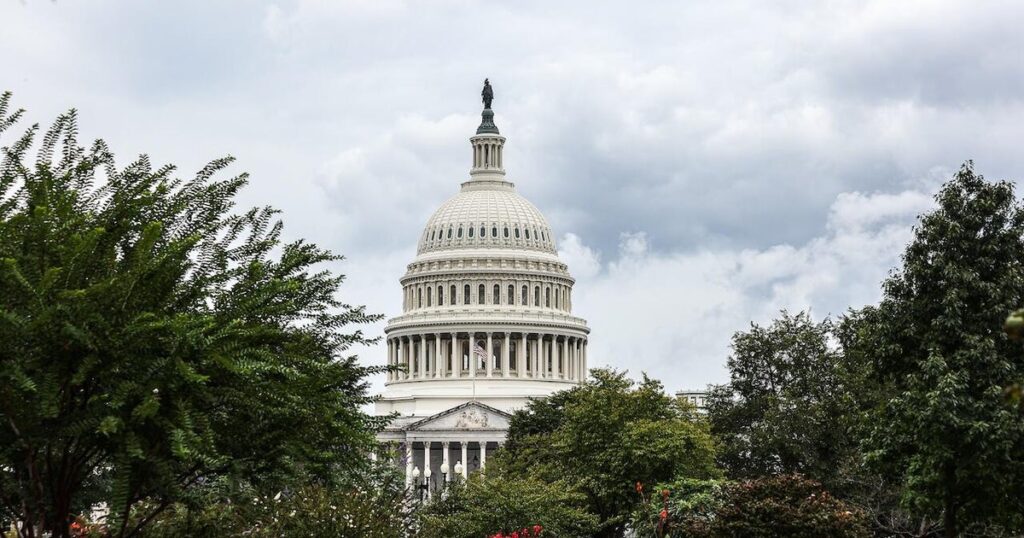Washington — Three Democratic governors are defending their states’ policies toward migrants and dispute claims of failing to cooperate with federal authorities, according to prepared remarks that will be delivered Thursday before a House oversight panel.
New York Gov. Kathy Hochul, Illinois Gov. J.B. Pritzker and Minnesota Gov. Tim Walz are among the witnesses testifying before the House Oversight and Government Reform Committee on so-called “sanctuary policies.”
“Let me be clear: Sanctuary policies don’t protect Americans. They protect criminal illegal aliens,” Oversight Chair James Comer, a Kentucky Republican will say in his opening statement.
The governors’ appearances come as President Trump and California Gov. Gavin Newsom remain embroiled in a legal and political standoff over the deployment of the National Guard troops and Marines to quell immigration protests in Los Angeles. Demonstrations have spread to other U.S. cities, including New York and Chicago, following a series of deportation raids.
The hearing
“Minnesota is not a sanctuary state,” Walz will tell lawmakers. “It is ridiculous to suggest that Minnesota — a state that is over 1,500 miles away from the Southern border and a thousand miles from lawmakers in Washington, D.C., who decide and implement border policy — is somehow responsible for a failure of immigration enforcement.”
The former vice presidential candidate has drawn intense scrutiny not only over immigration policy but also for his handling of social justice protests that broke out in Minneapolis following the death of George Floyd in 2020. Trump administration officials have cited Walz’ actions to justify the president’s decision to federalize troops in California. While Walz does not appear to directly address the controversy in his testimony, he says he is “disappointed” in the federal government’s overall approach.
“As governor of Minnesota, it is incumbent on me to use the state’s resources to help Minnesota families—not turn those resources over to the administration so they can stage another photo-op in tactical gear or accidentally deport more children without observing due process,” Walz is set to say.
Ahead of the hearing, the GOP-led panel released a video compilation of various news clips accusing the governors of “shielding” undocumented immigrants and “causing chaos” in their states.
A memo from Hochul’s office suggested the hearing could be “derailed by wild accusations” and “twisted characterizations” but noted the governor’s position is “clear” when it comes to supporting strong borders and comprehensive immigration reform.
“New York state cooperates with U.S. Immigration and Customs Enforcement (ICE) in criminal cases,” Hochul says in her prepared testimony. “And our values as New Yorkers demand that we treat those who arrive here in search of a better life with dignity and reject policies that tear law-abiding families apart.”
Hochul also addresses the influx of more than 220,000 migrants to New York City since early 2022, many of whom were bussed from border states, calling it “an unprecedented humanitarian crisis.”
“We have responded to this crisis with both compassion and pragmatism,” Hochul states.”And as a result, we largely prevented what could have become an additional crisis — one of street homelessness and tent cities.”
Pritzker says Illinois also stepped up to the challenge, and blamed the lack of federal intervention and cooperation from border states for exacerbating the problem.
“As governor, my responsibility is to ensure that all Illinoisans feel safe in their homes, their businesses, and their communities,” Pritzker is prepared to say. “That is why my administration continued to make significant investments in public safety, even as our resources were strained because of the lack of federal support during the crisis — expanding our state police force and investing in efforts to reduce gun violence.”
Congressional focus on “sanctuary” polices
Thursday’s session follows a March hearing on sanctuary cities with four Democratic mayors: Eric Adams, of New York, Mike Johnston of Denver, Brandon Johnson of Chicago and Michelle Wu of Boston.
Comer launched an investigation in January into “sanctuary jurisdictions,” including states, counties or cities, to examine their impact on public safety and federal immigration enforcement.
President Trump has vowed to crack down on localities that don’t back his immigration agenda.
Earlier this month, the Department of Homeland Security removed its list of sanctuary jurisdictions after several cities challenged the findings.

